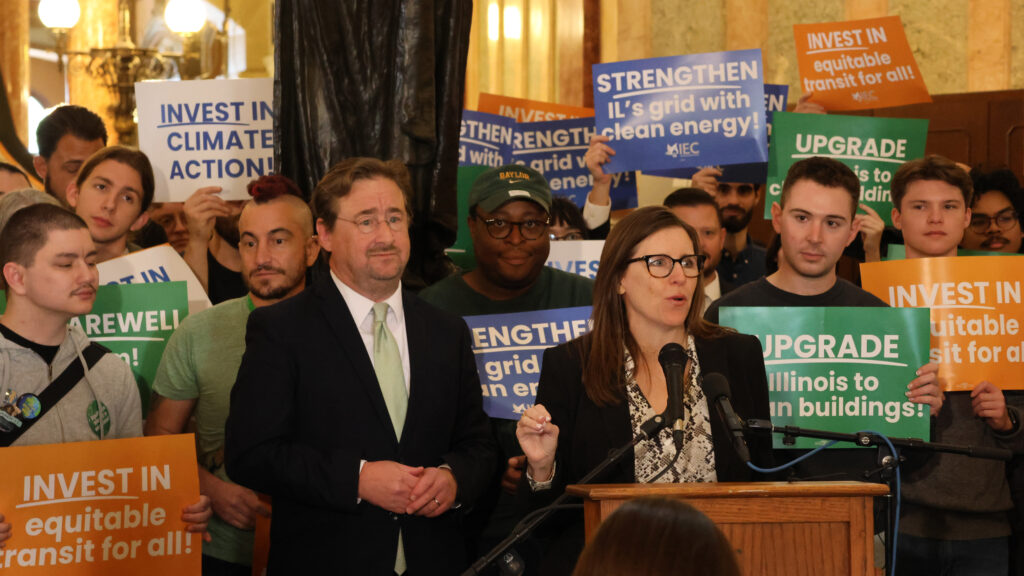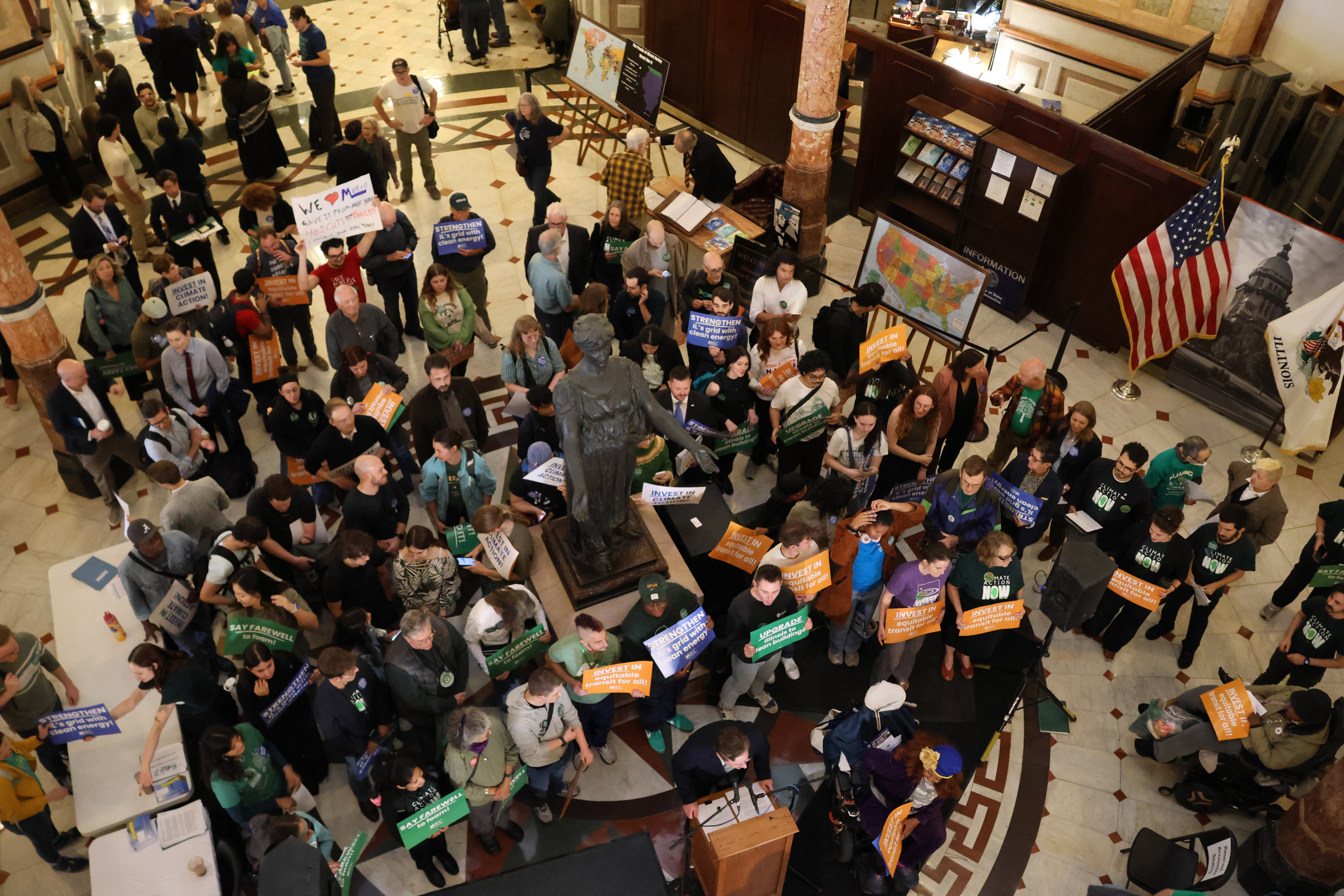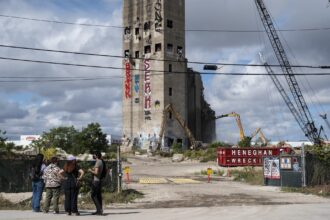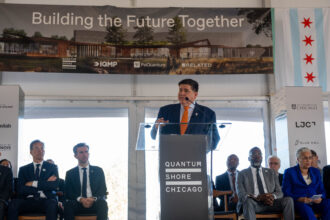SPRINGFIELD, Ill.—To meet with state lawmakers here, Michael Churchill, 24, left his home south of Chicago at 3 a.m. Wednesday, took a rideshare to a commuter rail station and switched to the L train to get downtown before catching an Amtrak train to the state Capitol Building.
He has a vision condition that makes driving difficult. But the regional transit system that made his trip possible faces service cuts if the state legislature doesn’t pass a funding bill to close a massive budget gap in 2026.
For Chicago resident Terry Sanders, 65, funding the transit system is just as important for the environment as ensuring there is clean and affordable energy to power that system. Opposing that funding on the grounds that it’s a Chicago problem makes no sense to her.
“They act like air pollution doesn’t travel,” said Sanders.
Churchill, Sanders and over 100 others joined the Illinois Environmental Council (IEC) in Springfield Wednesday to press lawmakers on these issues. IEC hosted a rally in the Capitol rotunda and organized constituent meetings between lawmakers and local environmental advocates before and afterward.
The event coincided with the second day of the state legislature’s brief fall veto session, six days spread through this month that are the last chance this year to pass bills. In addition to transit funding, many attendees advocated for passage of the Clean and Reliable Grid Affordability (CRGA) Act, a sweeping omnibus energy bill aimed at ensuring the state meets its goal to transition to renewable energy by 2050.
State Rep. Ann Williams, a Democrat representing Chicago’s North Side, introduced the CRGA Act during the spring legislative session, but the bill never made it to a vote. Disagreements over battery financing, data center regulations and lifting a moratorium on nuclear plant construction drove a wedge between environmental, labor and industry groups.

Kady McFadden, a legislative strategist for the Illinois Clean Jobs Coalition, thinks a lot has changed about the political landscape since then.
“Residents of Illinois are feeling the cost of inaction,” she said.
Consumer electricity prices are spiking amid an unprecedented buildout of power-hungry data centers. McFadden believes representatives are hearing about it from upset constituents.
An analysis by the Illinois Power Agency, an independent organization charged with procuring energy for the state, suggested that the battery storage increase called for in the CRGA Act would lower consumer energy bills.
State Sen. Christopher Belt, a Democrat who represents the Metro East region near St. Louis, nodded in agreement as constituents from his downstate district explained during a meeting with him why they want the CRGA Act to pass. Belt was also on board when the conversation turned to funding for the Chicago-area transit system, noting that he learned from colleagues in the Black Caucus that proposed transit cuts would likely disproportionately affect communities of color on the south and west sides of Chicago.
The state legislature has a full schedule during the session this month. But McFadden believes that rising electricity costs paired with sharp federal funding cuts add urgency to the push for energy legislation.
“This bill is ready to go,” said McFadden. “We’ve been able to take the summer to make sure that stakeholders are in alignment. … Now all that’s left is to vote.”
About This Story
Perhaps you noticed: This story, like all the news we publish, is free to read. That’s because Inside Climate News is a 501c3 nonprofit organization. We do not charge a subscription fee, lock our news behind a paywall, or clutter our website with ads. We make our news on climate and the environment freely available to you and anyone who wants it.
That’s not all. We also share our news for free with scores of other media organizations around the country. Many of them can’t afford to do environmental journalism of their own. We’ve built bureaus from coast to coast to report local stories, collaborate with local newsrooms and co-publish articles so that this vital work is shared as widely as possible.
Two of us launched ICN in 2007. Six years later we earned a Pulitzer Prize for National Reporting, and now we run the oldest and largest dedicated climate newsroom in the nation. We tell the story in all its complexity. We hold polluters accountable. We expose environmental injustice. We debunk misinformation. We scrutinize solutions and inspire action.
Donations from readers like you fund every aspect of what we do. If you don’t already, will you support our ongoing work, our reporting on the biggest crisis facing our planet, and help us reach even more readers in more places?
Please take a moment to make a tax-deductible donation. Every one of them makes a difference.
Thank you,











